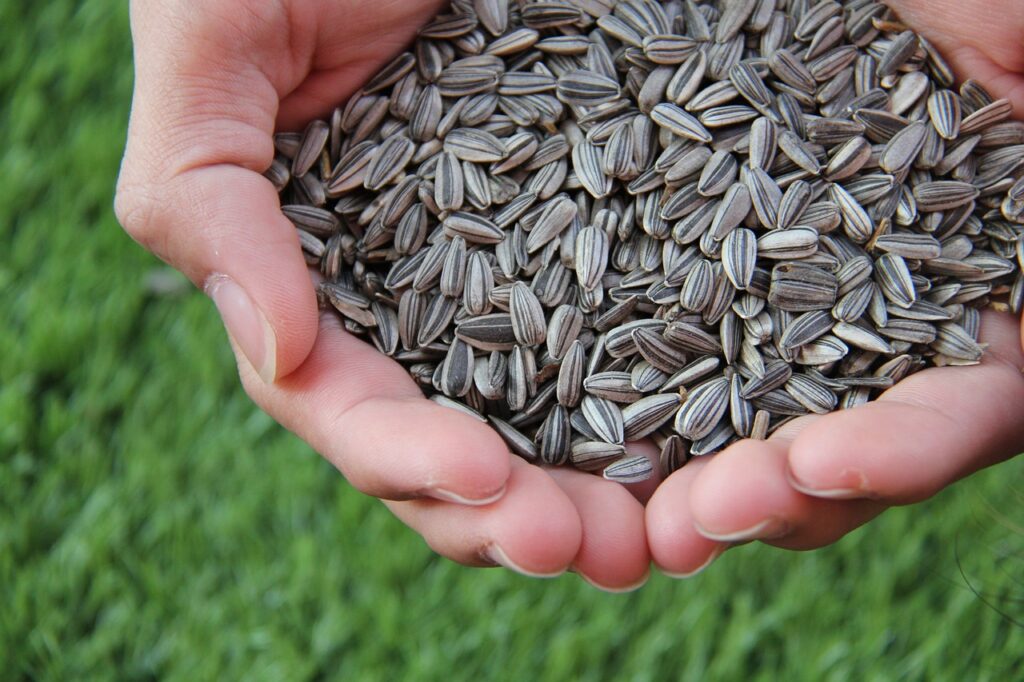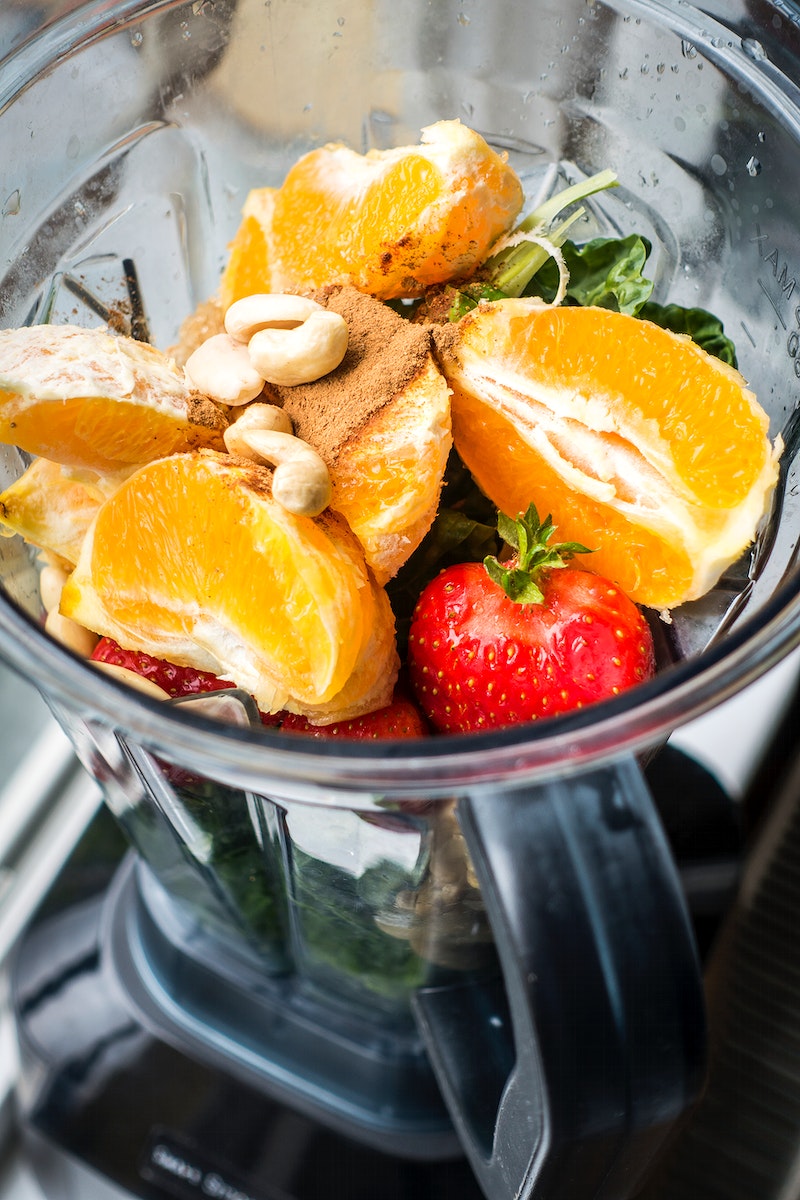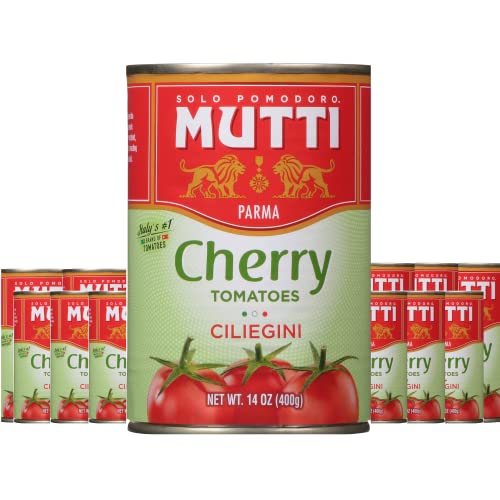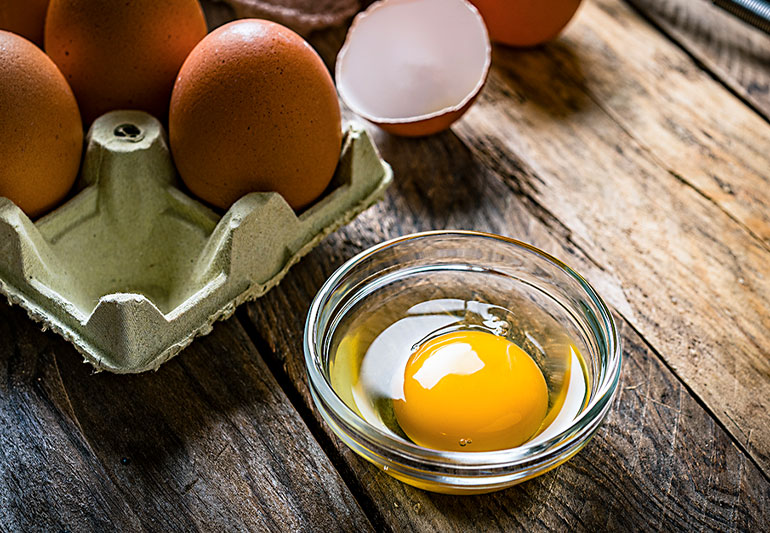Raw sunflower seeds are an excellent source of protein, fiber, and essential omega fats. They also provide a good amount of vitamin E and selenium.
However, it would be best if you kept in mind that roasting can reduce some of the nutritional value of these seeds. This is because some essential fatty acids may get oxidized during roasting.
| Nutrient (per 1 ounce, or 28 grams) | Sunflower Seeds |
|---|---|
| Calories | 165 |
| Fat | 14 g |
| Saturated fat | 1.5 g |
| Carbohydrates | 6 g |
| Fiber | 3 g |
| Protein | 6 g |
| Vitamin E | 37% DV |
| Thiamin | 10% DV |
| Magnesium | 9% DV |
| Selenium | 32% DV |
| Copper | 10% DV |
| Manganese | 30% DV |
Note that these values are approximate and may vary depending on the specific brand and type of sunflower seeds. Sunflower seeds are a good source of healthy fats, protein, and fiber, as well as important micronutrients such as vitamin E, thiamin, and magnesium. They are also a good source of antioxidants, including selenium, which can help protect cells from damage. Sunflower seeds can be enjoyed as a snack, added to salads or trail mixes, or used in baking and other recipes. It is important to consume sunflower seeds in moderation, however, as they are high in calories and fat. Some people may also be allergic to sunflower seeds, so it is important to be aware of any potential allergic reactions.

Vitamin E
Sunflower seeds are an excellent source of vitamin E, a fat-soluble antioxidant that fights free radicals and supports brain and nervous system functions. Getting enough vitamin E is beneficial for overall health; not only does it protect against heart disease, cancer and other illnesses but it can also improve your mood and relieve stress.
Additionally, vitamin D3 can strengthen your immunity and guard against infections. It has also been known to alleviate symptoms associated with asthma and osteoarthritis, as well as managing conditions like high blood pressure or autoimmune disorders like rheumatoid arthritis.
Raw sunflower nuts are an ideal snack, packed with nutritious protein, fiber and heart-healthy monounsaturated fats. Not only that, but they’re also high in vitamin E as well as magnesium, iron, zinc and potassium – making them a complete nutritional powerhouse!
Vitamin E is an essential nutrient that aids skin healing and supports eye and nerve health. When combined with vitamin C, it strengthens the skin’s own lipid barrier which has become compromised due to environmental pollution and UV rays.
It can improve atopic dermatitis, a condition that causes itchy, red skin. Furthermore, vitamin E serves as an antioxidant which shields your body from free radical damage and keeps skin healthy.
Sunflower seeds provide a concentrated source of vitamin E in the form of alpha-tocopherol, which your body requires most.
These nuts contain linoleic acid, which your body uses to synthesize a hormone-like compound that relaxes blood vessels and lowers cholesterol. According to one study, women with type 2 diabetes who consumed one ounce of sunflower seeds daily for three weeks experienced an overall 5% drop in their blood pressure readings (7).
They provide a healthy source of omega-3 fatty acids, which have been proven beneficial for cardiovascular health and can lower your risk for coronary heart disease. Furthermore, they contain selenium which aids in detoxifying the liver from toxins that damage cellular DNA and increase cancer risks.
Vitamin B
Raw sunflower nuts are an excellent source of vitamin B, a group of water-soluble vitamins essential for cell metabolism. They supply several varieties of B vitamin, such as B-1, B-6, folate and pathogenic acid.
Vitamin B aids in the conversion of carbohydrates, fats and proteins into energy. Not only that, but it can improve your mood as well as memory retention and focus.
B vitamins can be obtained through a variety of foods, such as milk, cheese, beans, nuts, poultry and meat. You may also purchase supplements containing this vital nutrient.
Vitamin B intake from food is essential for maintaining healthy blood cells and a robust immune system. A lack of this nutrient may result in anemia, so it’s best to ensure you get enough through food each day.
Sunflower seeds are an excellent source of thiamin, niacin, folate, B-6, pantothenic acid, calcium, iron, magnesium, manganese zinc and selenium. Furthermore, sunflower seeds contain phytosterols which may aid in lowering cholesterol and preventing cancer.
Sunflower seeds are an excellent source of essential vitamins and minerals, as well as anti-inflammatory properties which may reduce the risk of osteoarthritis or rheumatoid arthritis. Furthermore, their antihyperglycemic effects may help maintain healthy blood sugar levels.
Sunflower seeds contain omega-3 fatty acids which may protect your heart from cardiovascular disease by decreasing levels of bad LDL cholesterol and raising HDL levels. Furthermore, their fiber content helps to lower blood pressure and the likelihood of arrhythmias (heart rhythm problems).
Add some sunflower seeds to your salads and cereal for a healthy dose of essential nutrients. They’re high-fiber foods that help regulate blood sugar levels, making them especially beneficial for people with diabetes or other health conditions that necessitate a low carbohydrate diet.
Sunflower seeds are an abundance of essential nutrients, but they’re also packed with phytosterols and other phenolic antioxidants. Studies have linked phytosterols to a decreased risk of cancer while antioxidants protect the body against free radical damage caused by free radicals.
Omega-3 Fatty Acids
Sunflower seeds are an excellent source of Omega 3 Fatty Acids, which have been linked to reduced inflammation and heart disease prevention. Furthermore, these seeds boast several minerals like magnesium, potassium and zinc.
They provide an excellent source of protein and fiber. At 163 grams per serving, these snacks make for a nutritious snack to consume on a regular basis.
It is essential to remember that sunflower seeds are an excellent source of Omega 3 Fatty Acids and polyunsaturated fats as well. The ideal ratio between these two fatty acids should be around 1: 1.
Unfortunately, not all foods are beneficial. Studies have revealed that the average Western diet contains too many Omega 6 fatty acids, leading to inflammation and an increased risk of chronic illnesses like heart disease or cancer.
That is why it’s essential to eat a variety of foods that provide the optimal balance of these two essential fats. Fortunately, you can achieve this balance with many sources including raw sunflower nuts.
These seeds are packed with oleic acid, an Omega 3 fatty acid. Studies have revealed that dietary oleic acid from sunflower seeds helps protect the heart from bad cholesterol by decreasing LDL (bad) cholesterol and increasing HDL (good) levels.
Sunflower seeds contain oleic acid, which is converted to gamma-linolenic acid – an Omega 6 fatty acid that helps reduce inflammation and boost heart health. Furthermore, these same gamma-linolenic acids reduce diabetes risk factors and improve lipid profiles.
Fruit and vegetables are an excellent source of Vitamin E, which is essential for heart health. Furthermore, they boast high amounts of antioxidants which may protect the body against diseases and premature aging.
Sunflower seeds are not only a great source of Vitamin E, but they’re also packed with protein and calcium – essential nutrients for bone and muscle health. Furthermore, sunflower seeds contain fiber which aids digestion while controlling blood sugar levels.
Minerals
Raw sunflower nuts provide essential vitamins and minerals your body requires, such as vitamin E, folate, phosphorus, copper, manganese and selenium. These minerals aid in immune function, cell signaling and more.
Sunflower seeds are packed with magnesium, an essential mineral for brain functioning and stress response. Furthermore, they contain copper which aids cellular communication as well as producing neurotransmitters like dopamine.
Zinc, an antioxidant found in raw sunflower nuts, is vital for the health of your immune system and increasing resistance to disease. It’s an antioxidant that shields cells against free radical damage while aiding with infections, increasing immunity levels and decreasing inflammation.
Magnesium is essential for bone health and energy levels in your body. Additionally, it aids in stress response regulation and blood sugar regulation.
A quarter cup of roasted sunflower seeds provides nearly 80% of your daily recommended value of this nutrient. Furthermore, it’s an excellent source of zinc which aids in immune function and hormone balance in your body.
This nut is packed with phytosterols, which have been found to reduce cholesterol and boost immunity. Furthermore, they may reduce the risk of certain cancers, making them an excellent addition to any diet.
The seed shell is an excellent source of fiber, which can aid digestion and alleviate constipation. Furthermore, they’re packed full of plant-based protein and heart-healthy fatty acids.
Before eating sunflower seeds, it’s best to soak them first so they become more digestible and your body can absorb the minerals they contain. Soaking also helps remove some of the phytic acid which could interfere with nutrient absorption.
Sunflower seeds are packed with essential vitamins and minerals, as well as anti-inflammatory compounds like chlorogenic acid and caffeic acid. Both of these can help lower cholesterol levels and maintain stable blood sugar levels.
Raw sunflower nuts not only provide essential nutrients, but they also have a delicious and nutty flavor that makes them an ideal snack. Furthermore, they contain fiber, plant-based protein, and heart-healthy fats which can help to sustain energy throughout the day.









